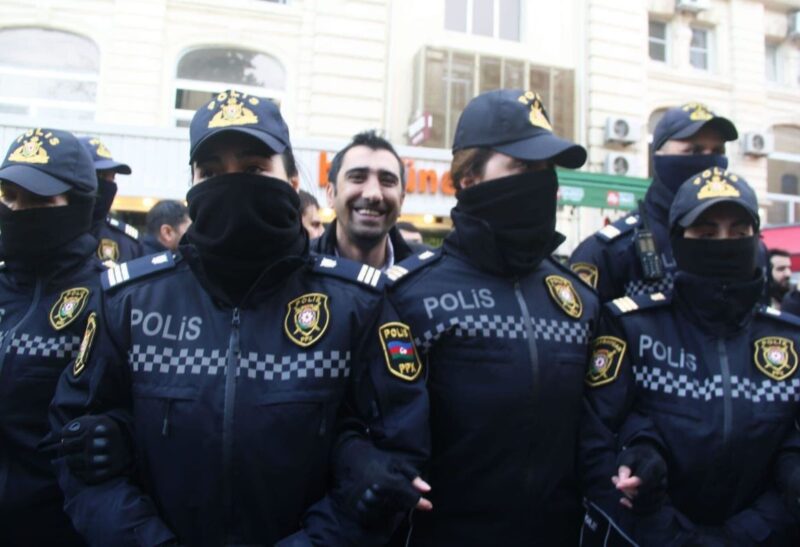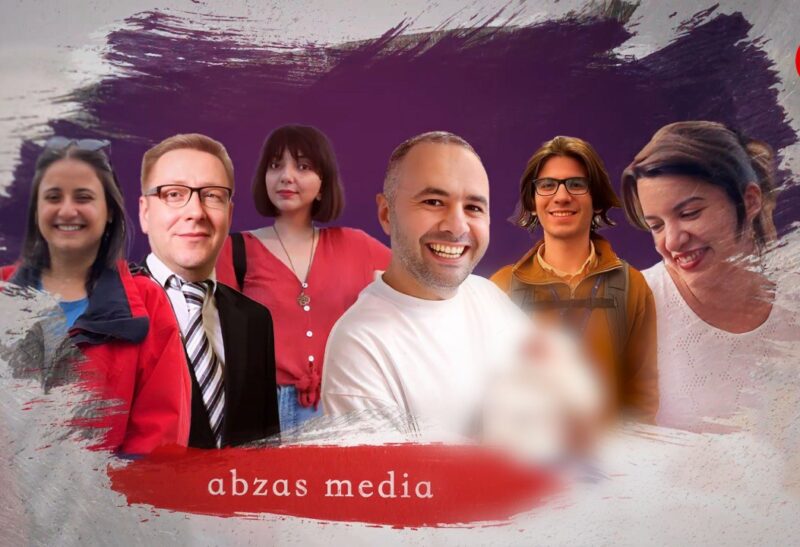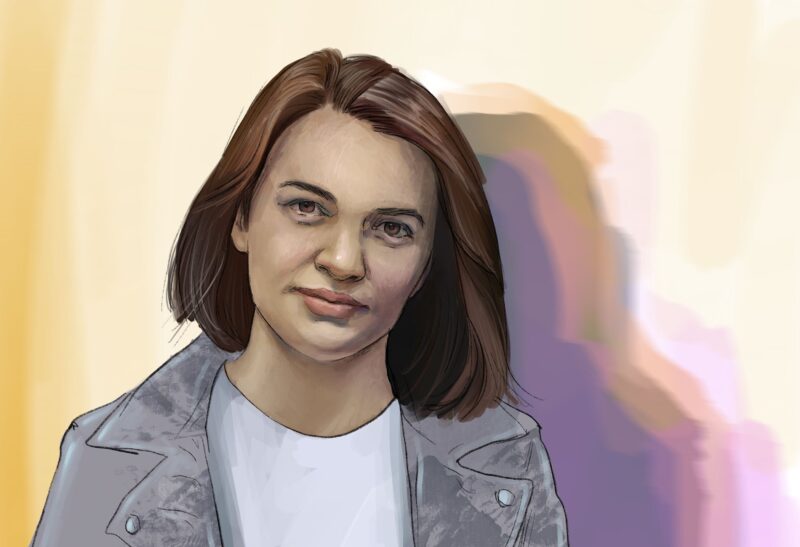The year 2023 has proven to be a tumultuous and challenging period for media and journalists in Azerbaijan.
In the backdrop of official claims of media freedom, a series of events unfolded, indicating a starkly different reality.
The year saw numerous incidents, including legal battles, arrests, pressures, and interference with journalistic work. Independent media representatives faced escalating challenges, often resulting in legal battles and restrictions on their operations.
Legal Battles and Arrests
Legal battles marked the year, with journalists like Sevinj Vagifqizi and Avaz Zeynalli facing lawsuits and restrictions on their activities. Sevinj Vagifqizi, in a prolonged litigation against the deputy director of a school, endured a five-year legal struggle over video footage filmed during the previous presidential elections.
Avaz Zeynalli’s wife protested against restrictions on her husband’s communication while in prison, emphasizing his innocence and the need for family access.
Jamil Mammadli faced imprisonment and legal proceedings, further highlighting the challenging environment for journalists.
Media Registry and Press Freedom Concerns
A group of Azerbaijan’s independent journalists and media specialists contested the establishment of a unified media registry, considering it a constraint on media freedom. Reporters Without Borders (RSF) termed the anniversary of the new Law “On Media” as a regrettable development for Azerbaijan, emphasizing increased control over the media sector.
Interference and Attacks on Journalistic Work
Numerous journalists faced interference and violence while covering various events. Instances involving Nargiz Absalamova, Nigar Mubariz, Elmeddin Shamilzadeh, Fatima Movlamli, Vali Shukurzade, Nurlan Kahramanli, and others highlighted the risks and challenges journalists confronted in performing their duties.
Media Outlets Under Pressure
Instances of censorship emerged, including the restriction of access to media channels like “Hurriyyat TV” and “dia.az” following their non-compliance with media registration requirements. Additionally, cyber attacks on Microscope Media suggested government involvement due to critical content related to events in Karabakh.
Additionally, throughout the year, several media outlet directors, journalists, and presenters, including Ulvi Hasanli, Sevinj Vagifqizi, Islam Shikhalin, and others, faced arrests, preventive measures, and charges, illustrating the continued pressure on independent media entities in Azerbaijan.
European Court of Human Rights’ Verdicts
The European Court of Human Rights (ECtHR) rendered multiple judgments on cases originating from Azerbaijan, acknowledging violations of freedom of expression, fair trials, and journalists’ rights. Notably, cases involving Afghan Mukhtarli, Avaz Zeynalli, Ganimat Zahid, and others shed light on infringements on journalistic freedoms.
Global Assessments of Press Freedom in Azerbaijan
International human rights organizations, including Freedom House and Reporters Without Borders, assessed Azerbaijan’s press freedom. The country ranked poorly in global press freedom indices, highlighting restrictions, censorship, and online manipulation of discussions, corroborating the challenges faced by the media community.
The year 2023 underscored the ongoing struggle for press freedom in Azerbaijan, with legal battles, arrests, and restrictions portraying a challenging environment for independent journalism. Despite official assertions of media freedom, the reality reflected a different, more complex narrative, marking a challenging period for Azerbaijani media and journalists.



